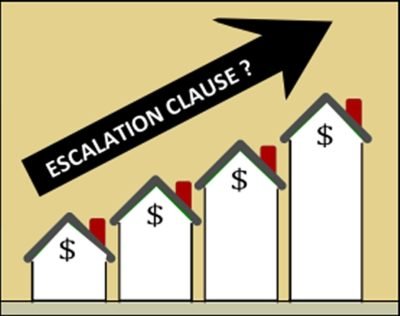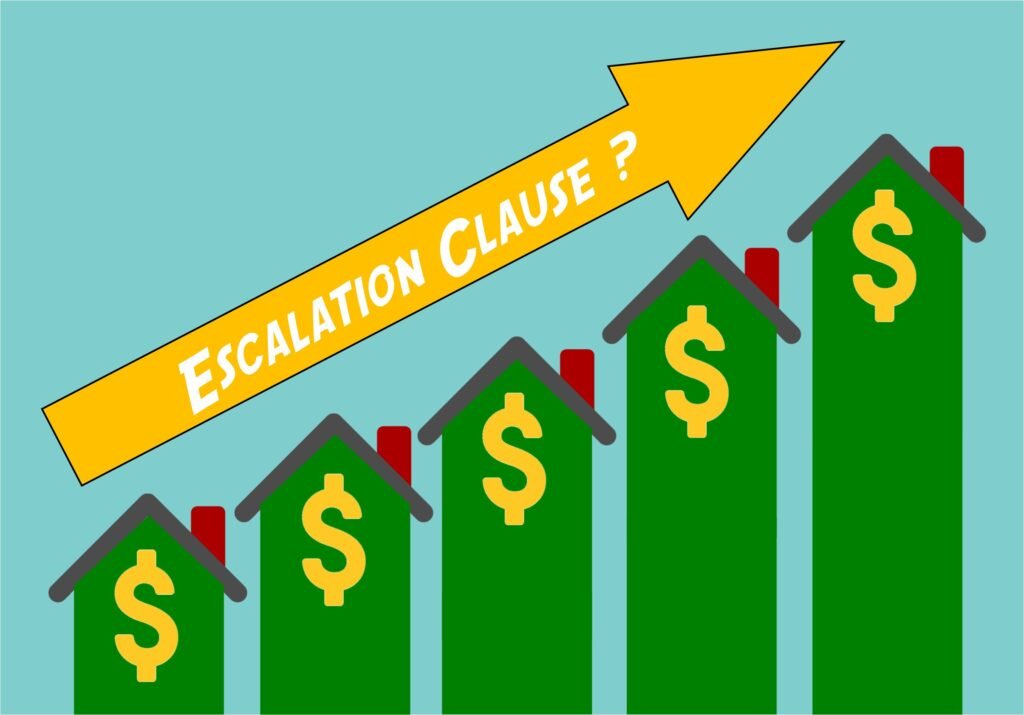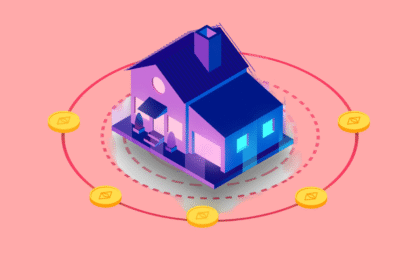In housing markets where many buyers are interested in the same property, people often think about ways to make their offer stand out. One of these strategies is the escalation clause that some real estate buyers put in their offers to buy a home.
Escalation clauses can be very useful, but buyers, sellers, and real estate agents need to know all the risks and details that come with them. This article will be a thorough, long-lasting guide to escalation clauses. It will explain what they are, how they work, when to use them, when to stay away from them, and the best ways to make sure they work for you.
What Is an Escalation Clause in Real Estate?

In real estate, an escalation clause is a part of a purchase offer that says the buyer is willing to automatically raise their offer price if certain conditions are met, usually when another offer is higher.
In its most basic form, the clause says:
- The starting offer price is the first amount you offer for the property.
- The incremental amount is the extra amount you’re willing to pay on top of the highest competing offer (for example, $5,000 more than the highest competing offer).
- The maximum cap is the most you are willing to pay for the property.
A Scenario
You offer $400,000 for a house with an escalation clause that raises your offer by $5,000 over the highest competing offer, up to $420,000. If another buyer offers $410,000, your offer automatically goes up to $415,000, unless another offer goes over your limit.
Why There Are Escalation Clauses

Escalation clauses came about to avoid the “highest and best” standoff, where buyers keep changing their bids without knowing what they are doing. Their goal is to:
- Cut down on guessing: Buyers don’t pay too much while still being competitive.
- Signal seriousness: The seller knows the buyer is serious and ready to act quickly.
- Speed up negotiations: No more back-and-forth counteroffers.
The Legal and Contractual Basis
An escalation clause is not a separate legal tool. It is part of a formal offer and becomes binding when the seller accepts the offer that includes it. The details and enforceability differ from one jurisdiction to the next. Some states have rules about escalation clauses or don’t allow them at all.
Buyers should always make sure that:
- A qualified real estate lawyer or licensed agent writes or checks the clause.
- The escalation process is clear, easy to understand, and based on proof that can be checked (like a written record of the competing offer).
- The clause follows the rules of the MLS and local real estate laws.
How Escalation Clauses Work in the Real World
Step-by-Step Guide
- Buyer Sends Offer: This includes the escalation clause in writing, with all terms spelled out clearly.
- Seller Reviews: Looks at all the offers that have come in.
- Trigger Event: A real (genuine) higher offer is made.
- Escalation Activation: The buyer’s offer automatically goes up based on the terms of the clause.
- Proof Requirement: The seller’s agent usually has to show the buyer’s agent the competing offer to make sure it is real.
Important Parts
- Amount of increment: Determines how competitive it is. If it’s too low, it might not beat the competition; if it’s too high, you might pay too much.
- Maximum cap: Keeps your budget safe and stops people from bidding too much.
- Proof provision: Makes sure everything is clear and stops fake “phantom” offers.
When to Think About Using an Escalation Clause

Not every market or property needs an escalation clause. When they work best:
- The market is hot—there are a lot of offers within days of listing.
- You know how much the property is worth because you’ve done your homework and are sure of your upper limit.
- You are in good financial shape; you have pre-approval and your financing is safe.
- You want to cut down on negotiation cycles, which is great when time is short.
When to Stay Away from Escalation Clauses
There are times when an escalation clause might do more harm than good:
- Cold or balanced markets: Sellers might expect to get the full price without having to fight for it.
- Seller behavior that is not clear—If you can’t trust the seller’s honesty, you could be taken advantage of.
- When the cap is easy to reach, other buyers may use your clause to push you to your limit.
- Some sellers think that escalation clauses are aggressive or manipulative, which makes negotiations more difficult.
Benefits of Escalation Clauses
Better Competitive Edge
In situations with multiple offers, you automatically jump ahead of competing bids without having to make constant changes by hand.
Protection of Price
Your clause makes sure you never go over your set limit.
How Well Negotiations Work
Reduces the number of repeated counteroffers, which saves time for both the buyer and the seller.
Mental Edge
Shows that you are serious, which could affect the seller’s decision even if your offer isn’t the best.
Risks and Drawbacks
Showing Your Hand
Now that sellers know how much you are willing to pay, they may try to push negotiations to your limit.
Possible Overpayment
In emotional bidding wars, your limit may be higher than the fair market value of the home.
Problems with Verification
Without strict proof requirements, you might be raising your bids on offers that aren’t really higher or real.
Legal Complications
Disagreements can happen when clauses are not written clearly, especially if the other offer is contingent or set up differently.
How to Use Escalation Clauses the Right Way

- Set a Reasonable Limit
Your cap should be based on:
- Recent sales that are similar (comps)
- The state and location of the property
- Your ability to get financing and your comfort zone
- Make sure the Increment is Strategic
Larger increments, like $1,000, might win out over smaller ones. Big increases might make the deal happen, but they could also make the final price too high. - Ask for proof of other offers
Always include a clause that says the seller has to give you a copy of the competing offer, with any private information blacked out. - Hire a Good Agent
An agent with experience can tell when escalation clauses are likely to work and when they might not. - Stay away from in situations with little competition
In a buyer’s market, an escalation clause could mean you’re desperate or make you pay too much.
The Seller’s View on Escalation Clauses
Sellers might feel different ways:
Pros for Sellers:
- Makes sure they get the best price possible without having to negotiate for a long time.
- Signals buyers who are interested and less likely to back out.
Disadvantages for Sellers:
- It makes it harder to compare offers, especially if there are more than one escalation clause.
- If buyers feel like they’re being pushed too far, they may get angry.
- Sometimes, a simple high offer without any escalation may feel cleaner and safer.
Example from the Real World
Picture two people making offers on a house that costs $350,000:
- Buyer A: Offers a flat $355,000.
- Buyer B: Offers $350,000, but the price can go up by $2,000 up to $360,000.
Buyer B’s offer goes up to $356,000 if another offer comes in at $354,000. This means they win the deal without going overboard at first.
But if the highest competing offer is $359,000, Buyer B’s clause goes up to $361,000 (if their cap allows), which could make them go beyond what they are comfortable with.
Things You Shouldn’t Do

- No maximum cap—if you leave it open-ended, prices will go up.
- Unclear terms lead to arguments about what causes escalation.
- Ignoring contingencies: Offers that come with conditions may not be worth as much as your cash or clean offer.
- Not taking appraisal limits into account—If the price goes up more than the appraised value, you may have to pay the difference in cash.
Best and Final Offer vs. Escalation Clause
With a “best and final” offer, you have to give your highest number right away. With an escalation clause, you don’t have to.
- Best and last: No automatic increase; all cards are on the table at once.
- Escalation clause: It only goes up if a higher offer triggers it.
It depends on which one to choose:
- What the seller wants
- Changes in the market
- The level of risk you’re willing to take
Things to Think About When It Comes to Ethics
Trust and openness are important for escalation clauses to work. The best ethical practices are:
- Agents checking and sharing proof of competing offers.
- Avoiding misuse to artificially inflate offers.
- Respecting everyone’s privacy while still proving that the offer is real.
Strategies for Success That Will Never Go Out of Style
These rules make sure that an escalation clause works in your favor, no matter if the market is going up or down:
- Before you set your cap, do a lot of research on the market.
- Be competitive, but also be smart with your money. Don’t go above what you would be willing to pay without the clause.
- Put clean offers first—cut down on contingencies and delays to make your position stronger.
- Get help from professionals—work with agents and lawyers who know the legal and strategic details of the clause.
- Winning the bid is important, but getting the best deal for you is even more important.
What Will Happen to Escalation Clauses in the Future
Even though real estate markets change, there will always be a need for tools that make negotiations easier and give you an edge over your competitors. If used correctly, escalation clauses will probably still be useful for many years to come, especially in cities and areas with a lot of demand.
They aren’t a magic bullet, and using them wrong can make you feel bad. But if you make smart choices, they can be a smart, strategic part of your home-buying toolkit.
Last Thoughts
In hot markets, an escalation clause real estate strategy can make a big difference, but it’s not the best option for everyone. Buyers need to think about the pros and cons, know the laws in their area, and work closely with professionals who have been in the business for a long time to write clauses that protect their interests.
If you use them wisely, escalation clauses can help you get the home of your dreams without having to go back and forth over and over again. But keep in mind that the best deal in real estate, just like in life, is one that feels good both financially and personally.






